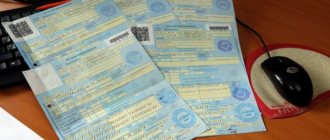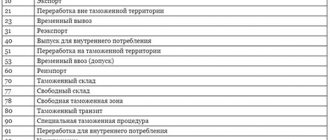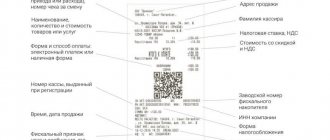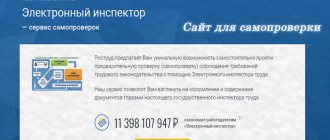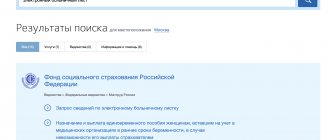When is a power of attorney required?
It is worth noting that since 2014, cases of fraud have become more frequent when concluding various transactions on the basis of a power of attorney issued by a notary. How does this happen? Fraudsters enter into contracts on the basis of a document that, for example, has lost its force or has been revoked by the principal. Accordingly, such transactions are declared invalid by a court decision. As a result, the buyer (if something was purchased) is left without money and without the purchased property.
There are cases when scammers use powers of attorney that were never issued.
They forge forms and seals of existing notaries. Without a thorough check, it will not be possible to detect such a fact of forgery.
The power of attorney must be checked in such cases.
:
- concluding agreements between individuals;
- when purchasing real estate or other property;
- concluding transactions between legal entities and individuals;
- registration of permission to dispose of property, and so on.
It is imperative to check the power of attorney when purchasing real estate. After all, scammers use exactly this method of selling.
By law, verification of the authenticity of a power of attorney is not mandatory. This is more of a recommendation when concluding any transactions to ensure buyer protection.
Article 185 of the Civil Code of the Russian Federation states that the authority of a representative of an individual or legal entity is confirmed by a power of attorney certified by a notary. It is issued for a certain period. It must indicate the powers of the representative.
A power of attorney carries serious legal consequences.
The legal significance of a power of attorney is often underestimated - although it can, for example, be used to sell your apartment or take out a loan in your name. You should be especially careful with “general powers of attorney”. They give another person the right to manage and dispose of property and are registered, for example, in the name of a realtor, thereby freeing the property owner from bureaucratic delays and wasting time in the MFC. It is worth understanding that from the point of view of the law, the concept of “general power of attorney” does not exist. The list of powers of such a power of attorney can be quite wide, and its validity period can be counted for decades. But it is impossible to issue one paper for all cases and for all the time.
Therefore, indicating in the power of attorney the right to conclude transactions with your property on your own behalf and subsequent registration of the transfer of ownership is very risky. In fact, you are depriving yourself of the opportunity to fully control how exactly the property will be disposed of (for example, whether it will be sold or given away for nothing), what amount it will be valued at, and how much you will ultimately receive from the buyer.
Who has the right to check the authenticity of a power of attorney?
Firstly, these are the persons who are directly involved in the transaction. Secondly, investigative and judicial authorities and their representatives. Thirdly, legal representatives in whose name the power of attorney was issued.
Until 2022, third parties could not participate in document verification. This rule was enshrined in law. They could only check that the power of attorney was filled out correctly.
Such measures were taken based on laws and regulations regarding the confidentiality of information about documents.
Since 2022, everything has changed. FNP (Federal Chamber of Notaries) has opened a service where you can easily verify the authenticity of a power of attorney. This has significantly reduced the number of illegal transactions.
Ways to verify a power of attorney
There are several of them:
- on the official website of the FNP in the register of powers of attorney;
- upon written request to the Federal Tax Service;
- directly from the notary who issued the power of attorney.
Let's look at each of them.
Check in the register on the FNP website
To do this, you need to go to the Internet resource https://www.reestr-dover.ru/ “Checking powers of attorney using details.”
In the window that opens, there will be a form in which the required fields are marked with asterisks. The user needs to provide the following information
:
- document registration number;
- date of its certification (certification);
- information about who exactly certified the power of attorney (full name of the notary/consular officer/local government official);
- the region in which the power of attorney was certified.
After this, you need to click on the “Find” button.
The automatic system will provide information about who issued the document and when, its validity period and other data. If errors were made when filling out the form, the system will prompt you to clarify the document number or full name of the notary. If the power of attorney has been revoked, information about this will be on the screen.
Written request to the FNP (Federal Notary Chamber)
This method of verification cannot be called operational. It takes time for the request to be delivered. And then the answer should come to it.
So, to find out the authenticity of the power of attorney, you need to make a written request. There is no approved form for it. You need to indicate in it the details of the power of attorney and the name of the notary who issued it. It would be useful to attach a copy of it. The request must be sent by registered mail with notification.
Advice. To quickly check the authenticity of a power of attorney, it is better to use the service of the Federal Notary Chamber.
Check with a notary
Each document certified by a notary contains his contact information. To verify the authenticity of the power of attorney, you can contact the notary who issued it.
The verification service is paid.
Unfortunately, no notary is immune from fraudsters. Any forms can be forged, as well as signatures with seals. Therefore, if the notary’s database does not contain information about the requested power of attorney, this does not mean that he is in collusion with a criminal group. This will serve as a signal for him to contact law enforcement agencies.
How to check
So, the legislation defines three types of powers of attorney: notarized; not notarized, but equated to such; power of attorney without certification. They are checked in different ways.
When notarizing a power of attorney, the notary takes full responsibility for it. The certified document is entered into the database of the Federal Notary Chamber. There is a special FNP service https://reestr-dover.ru/. After following the link, the user will have to fill out a form in which he enters:
- registration number of the document - it can be seen next to the notary’s signature;
- date, month, year of issue;
- Full name of the notary (just enter the first three letters, and the system will display a list).
Using the “Find” button you can get the result:
- the document has been found and is valid;
- the document was found, but not all details match;
- the document is not valid, canceled by the principal;
- document not found.
If the details do not fully correspond to the data, it is necessary to clarify the terms of representation with the notary in person. Information about canceled powers of attorney is placed in a separate tab on the service for the convenience of users and maximum transparency of information. If the document is not found, it means that the notary did not notarize it.
Similarly, on the same service you can check the power of attorney issued by the consulate or local government. Sometimes it is necessary to verify a power of attorney by contacting a notary, rather than via the Internet. This service is paid.
You can make a request in writing indicating the data of the power of attorney to the Federal Tax Service, but this method of verification is not fast. A power of attorney equivalent to a notarized one is verified directly at the place of issue: place of detention, military unit, medical institution. You need to make an official request there.
A simple power of attorney, not certified by anyone, is checked visually. The passport details of the authorized person and other essential data are verified. In case of doubt, contact the person who issued the document and clarify its legality.
Checking a canceled power of attorney
It is also performed on the FNP website. To do this, go to the “Information on cancellation of power of attorney” tab.
To find the information you need, click on the “Search” button. A new window opens.
It contains the following information:
- document registration number;
- the date of his certificate;
- Full name of the notary and other necessary information.
After filling out the fields, click on the “Find” button. If the system has information about revoking the power of attorney, it will appear on the screen.
How to check the authenticity of a paper that was issued without a notary
In some cases, notarization is not necessary. A paper certified only by the signature of the principal (a simple written form) is suitable for obtaining documents, certificates, concluding contracts for the provision of communication services and utility services, etc. A power of attorney to receive a salary is quite common. Usually it is certified at the place of work by the employer, without the participation of a notary.
To ensure that the document is genuine and up-to-date, pay attention to:
- document details;
- date of issue;
- its validity period;
- authority of the issuer.
You should also study the list of powers of the representative and make sure that he has the right to perform the necessary operations.
We invite you to familiarize yourself with the sample.
When it is not possible to check the power of attorney on the FNP website
It happens that when checking a document, information about it is missing in the system. This does not mean that the document is fake.
The system does not provide information about powers of attorney that were certified before 01/01/2017.
But there are cases when a power of attorney was issued after this date, but there is no information about it in the general register. What does this mean
:
- the power of attorney was not certified by a notary (the authenticity is in doubt);
- the issuance and execution of the document was carried out on the day of the inspection on the FNP website.
Information in the registry is updated within a few days
. Therefore, it is better to play it safe and enter into transactions after the document has been verified.
If the power of attorney has not been entered into the general register of the Federal Notary Chamber, you should seek help from the notary who issued it. It is better to postpone the conclusion of the transaction while the document is being verified. Otherwise, you can fall into the hands of scammers, who often act on the basis of invalid powers of attorney.
Who can verify the validity of a power of attorney issued by a notary?
According to the provisions of Art. 34.4 “Fundamentals of the legislation of the Russian Federation on notaries” (approved by the Supreme Court of the Russian Federation on February 11, 1993 N 4462-1) (as amended on May 23, 2018), the Federal Notary Chamber provides access to the information contained in the unified notary information system to everyone. Therefore, if you are interested in checking the authenticity of a power of attorney, use the official website where you can find the necessary information. The online verification service is provided around the clock and completely free of charge.
What information can you find out:
- information about the person certifying the power of attorney;
- date of certificate;
- registration number of the document in the register of notarial actions of the UIS notary;
- the date and time of entering information about the cancellation of the document into the register if it was cancelled.
It is worth noting that any actions performed by a notary are entered by him into the register of notarial actions of the UIS immediately. They are also confirmed by an enhanced qualified electronic signature of a notary. Therefore, there is no need to doubt the information obtained through the system.

